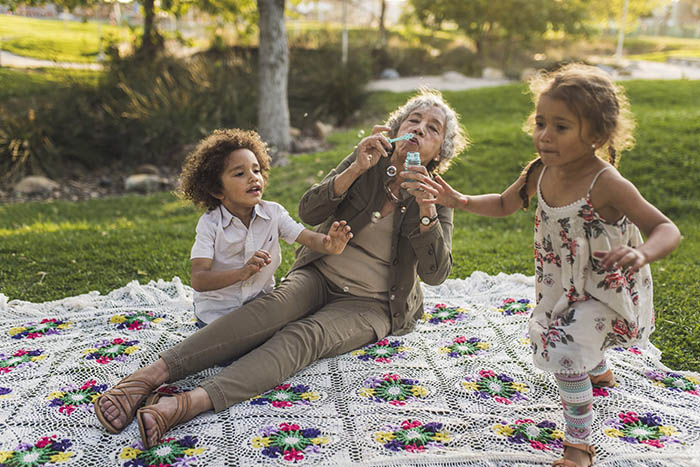At Emory’s Integrated Memory Care Clinic (IMCC), we know that caring for family members or loved ones with Alzheimer’s disease or related dementias can be challenging, especially on your own. Thankfully, options for care exist within the community. Different options will be right for different patients, as some patients in the early stages of dementia won’t need nearly as much assistance or supervision as people with advanced dementia. We’ve included several options for community-based care below, ranked from the options with the least restrictions that provide the lowest amount of hands-on care to those with increased security and restrictions that provide the highest level of hands-on care.
Senior Centers
The Older Americans Act (OAA), originally enacted in 1965, provides resources for Senior Centers. There are currently more than 10,000 centers in the U.S. serving more than a million adults each day. These centers offer services like meal and nutrition programs, health, fitness, and wellness programs, transportation programs, social activities, education and arts programs and public benefits counseling. These are a good option for people in the very early stages of Alzheimer’s or related dementias.
Adult Day Programs
These programs offer a place for your loved one with dementia to go, interact with others, socialize and engage. These programs typically exist in a secure environment so patients can’t wander off and leave the facility. This becomes important for patients with cognitive impairment who could become lost in unfamiliar settings. The programming at facilities like these is created specifically for people with limited attention spans and cognition, so your loved one won’t become frustrated, and will be able to enjoy the activities.
Adult Day Programs are focused either on a medical or social model. Most programs are the social version. Adult Day Programs designed with a medical model can provide a higher level of care. For example, patients experiencing urinary incontinence will typically need to be in a program with a medical model.
Hours and days of the week vary by program, some offer weekday care only and others offer care on weekends. These programs typically offer a more affordable option to in-home care, as you can expect to pay anywhere from $35-$80 a day vs. paying in-home help a higher hourly rate.
Adult Day programs help keep dementia patients in their homes longer by keeping them socially engaged and giving them a structured routine. This may help your loved one sleep better, improve their health and give caregivers like you a much-needed break.




